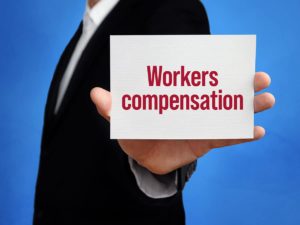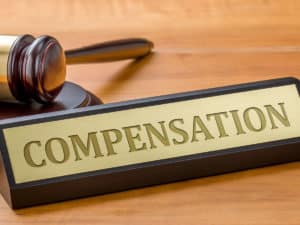Taking the Mystery Out of Workers’ Comp Trials in California
Taking the Mystery Out of Workers' Comp Trials in California: What to Expect and How Often They Happen

How Often Do Workers' Compensation Cases Go To Trial
Hey there, readers! If you've stumbled upon this post, you're probably curious about workers' compensation cases in California. Maybe you or someone you know has been injured on the job and you're trying to figure out what comes next. In this blog post, we'll talk about how often these cases actually go to trial and what you can expect if you find yourself in this situation.
Heading to Trial? Not as Often as You Might Think
First things first, let's address the big question: How often do workers' compensation cases go to trial in California? Surprisingly, it's not as common as you might think. In fact, only a small percentage of these cases end up in court. Most of the time, both parties (that's the injured worker and the employer or their insurance company) come to an agreement through a process called settlement.
Settlements are basically agreements between both parties to resolve the claim without going to court. This can be a win-win situation because it saves time, money, and stress for everyone involved. It's important to note that, as the injured worker, you have the right to accept or reject a settlement offer. Always consult with a workers' compensation attorney to make sure you're getting the best possible deal.
So, When Do Cases Go to Trial?
Of course, there are times when a settlement just can't be reached. This could be because the parties can't agree on the extent of the injuries, the cost of medical treatment, or the amount of lost wages. When this happens, the case goes to trial.
A workers' compensation trial in California is different from what you might see on TV in a criminal or civil trial. For starters, there's no jury. Instead, a workers' compensation judge hears the case and makes the final decision.
What Can You Expect at a Workers' Comp Trial?
Now that we've covered the basics, let's take a closer look at what actually happens during a workers' compensation trial in California.
1. Preparing for Trial
Before the trial begins, you and your attorney will gather all the necessary documents and evidence to support your claim. This includes medical records, witness statements, and any other information that can help prove your case. Your attorney will also work with you to develop a legal strategy and prepare you for giving testimony.
2. Opening Statements
Once the trial starts, both sides will have the chance to present their opening statements. This is where each party briefly outlines their case and gives the judge an idea of what to expect during the trial. Your attorney will highlight the key points of your claim and explain why you're entitled to workers' compensation benefits.
3. Presenting Evidence

Taking the Mystery Out of Workers' Comp Trials in California
After the opening statements, both sides will present their evidence. This is where the “meat” of the trial happens. Your attorney will use the documents and witnesses you've gathered to prove your case. The other side will try to counter your arguments and show why you're not entitled to benefits.
4. Cross-Examination
During the trial, both sides will have the opportunity to question each other's witnesses. This is called cross-examination. Your attorney will ask questions to the other side's witnesses to challenge their credibility and the accuracy of their statements. The other side will do the same to your witnesses.
5. Closing Arguments
After all the evidence has been presented, both sides will give their closing arguments. This is the last chance for each party to persuade the judge in their favor. Your attorney will summarize your case and explain why the evidence supports your claim for workers' compensation benefits.
6. The Judge's Decision
Finally, after hearing all the evidence and arguments, the workers' compensation judge will make a decision. This can happen right after the trial or, more commonly, within a few weeks after the trial has ended. The judge will issue a written decision, called the “Findings and Award,” which outlines the reasons for their decision and the benefits you're entitled to receive.
7. Appeals
If either party is unhappy with the judge's decision, they have the option to appeal. In California, this means filing a petition for reconsideration with the Workers' Compensation Appeals Board. The appeals process can be lengthy and complicated, so it's essential to have an experienced workers' compensation attorney by your side if you choose to appeal.
The Bottom Line – Taking the Mystery Out of Workers' Comp Trials in California

Workers' Compensation Report
Workers' compensation trials in California can be intimidating, but they're not as common as you might think. Most cases are resolved through settlement, which can save everyone time and stress. However, if your case does go to trial, it's crucial to have an experienced workers' compensation attorney on your side to guide you through the process and ensure your rights are protected.
Remember, if you've been injured on the job, it's essential to seek legal advice as soon as possible. A workers' compensation attorney can help you navigate the complex system and make sure you get the benefits you deserve.
That's all for Taking the Mystery Out of Workers' Comp Trials in California! We hope it's helped demystify the workers' compensation trial process in California. If you have any questions or need help with your case, don't hesitate to reach out to a workers' compensation attorney in your area.
- Safely and Legally Navigating Parking Lots in California - July 15, 2024
- Navigating the Aftermath of a Highway Auto Accident in California - July 15, 2024
- An Overview of California's Commercial Truck Insurance Laws - July 15, 2024
